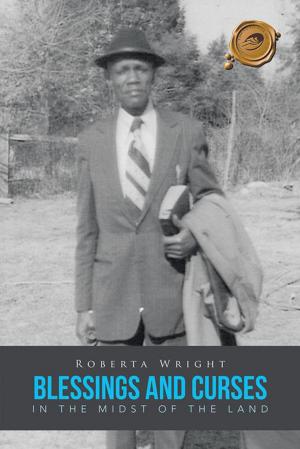J.A.P.
(Just Another Pilot)
Nonfiction, Reference & Language, Transportation, Aviation, History, Military, Fiction & Literature, Action Suspense| Author: | EDWARD LANDERS | ISBN: | 9781490720647 |
| Publisher: | Trafford Publishing | Publication: | December 10, 2013 |
| Imprint: | Trafford Publishing | Language: | English |
| Author: | EDWARD LANDERS |
| ISBN: | 9781490720647 |
| Publisher: | Trafford Publishing |
| Publication: | December 10, 2013 |
| Imprint: | Trafford Publishing |
| Language: | English |
JAP is a story about a young man who somehow, through a series of accidents intentions, mistakes and drive became a Naval Aviator, no mean feat by any accounts. Having survived the grim reaper several times during his eight years of flying on active duty with the Navy he has come to believe, sort of, that he is a good aviator and can take care of just about anything that arises in the realm of flying. He has disgustedly left active duty flying with the Navy as the result of witnessing inept officers who should never have made the grade continue to fly and serve without any leadership skills or command authority amounting to anything effective. Most of them were, in the young mans opinion, timid beings who were only concerned with keeping their status quo resulting in their refusal to make decisions let alone lead in any forward power projections. His decision to leave the Navy and throw his lot in with the airline pilots career was based on his perception that an airline captain just had to be made of stronger stuff. That idea was also doomed to an early failure when he actually started to fly with the pilots who make up the airborne operation of the airline. He found the same weaknesses on the part of the airline pilots that he had witnessed in the Navy pilots he had flown with. Still struggling to find perfection the young man (named Kruger in the book) tries flying with the Naval Reserve pilots only to find, once more, that those pilots were even worse than the two groups that he had flown with earlier. Krugers worst nightmare finally comes to pass when he finds himself making some bad mistakes and decisions just like all of the other pilots he has ever encountered. He has become a JAP or just another pilot like all of the others. In spite of all of the disappointments he encounters he still has fun and fulfillment flying and is convinced that he could really do no job other than flying. Flying has always been described as hours and hours of boredom punctuated by moments of stark terror. Krugers experiences follow that pattern except the boring hours are interesting also. Kruger had always considered that the most exhilarating and exciting time you could ever experience was when you were right on the dangerous edge of things; when you had less than a fifty percent chance of surviving the situation you were in and when you finally came out on top, alive and well albeit that your heart was trying to go into tachycardia and your breathing could only be described as panting. There is no rush better than this. There are no punches pulled in the book. The author tells it like it really was without cutting corners or glossing over the facts. It is what it was. People are people and no one is perfect. We all have warts no matter how good we look and usually the ones who boast the most and are the models of perfection are the ones who have the most faults. As the Bible says, Judge not least ye be judged. Kruger finds that to be very true and, as a result he mulls each flight in his mind in an effort to try to perfect what he has just done. There are no heroes in the book but there are a lot of truths if you can find them.
JAP is a story about a young man who somehow, through a series of accidents intentions, mistakes and drive became a Naval Aviator, no mean feat by any accounts. Having survived the grim reaper several times during his eight years of flying on active duty with the Navy he has come to believe, sort of, that he is a good aviator and can take care of just about anything that arises in the realm of flying. He has disgustedly left active duty flying with the Navy as the result of witnessing inept officers who should never have made the grade continue to fly and serve without any leadership skills or command authority amounting to anything effective. Most of them were, in the young mans opinion, timid beings who were only concerned with keeping their status quo resulting in their refusal to make decisions let alone lead in any forward power projections. His decision to leave the Navy and throw his lot in with the airline pilots career was based on his perception that an airline captain just had to be made of stronger stuff. That idea was also doomed to an early failure when he actually started to fly with the pilots who make up the airborne operation of the airline. He found the same weaknesses on the part of the airline pilots that he had witnessed in the Navy pilots he had flown with. Still struggling to find perfection the young man (named Kruger in the book) tries flying with the Naval Reserve pilots only to find, once more, that those pilots were even worse than the two groups that he had flown with earlier. Krugers worst nightmare finally comes to pass when he finds himself making some bad mistakes and decisions just like all of the other pilots he has ever encountered. He has become a JAP or just another pilot like all of the others. In spite of all of the disappointments he encounters he still has fun and fulfillment flying and is convinced that he could really do no job other than flying. Flying has always been described as hours and hours of boredom punctuated by moments of stark terror. Krugers experiences follow that pattern except the boring hours are interesting also. Kruger had always considered that the most exhilarating and exciting time you could ever experience was when you were right on the dangerous edge of things; when you had less than a fifty percent chance of surviving the situation you were in and when you finally came out on top, alive and well albeit that your heart was trying to go into tachycardia and your breathing could only be described as panting. There is no rush better than this. There are no punches pulled in the book. The author tells it like it really was without cutting corners or glossing over the facts. It is what it was. People are people and no one is perfect. We all have warts no matter how good we look and usually the ones who boast the most and are the models of perfection are the ones who have the most faults. As the Bible says, Judge not least ye be judged. Kruger finds that to be very true and, as a result he mulls each flight in his mind in an effort to try to perfect what he has just done. There are no heroes in the book but there are a lot of truths if you can find them.















